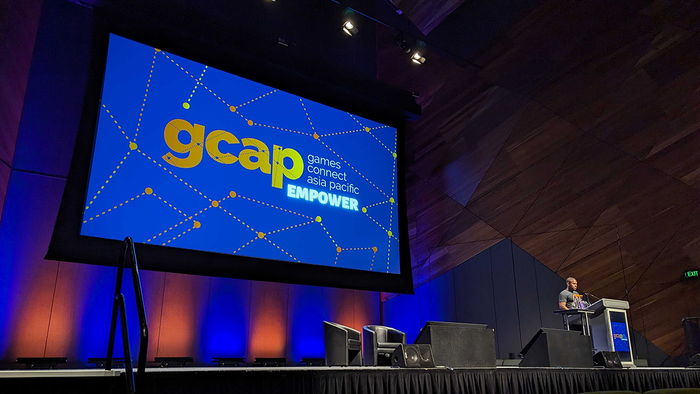An attempt to dissect quick time events
Playing a game on my couch I started thinking about quick time events, and here is the outcome. This is an attempt to identify some of the key characteristics of quick time events as a game mechanic and what it can mean for a game.

First time I recall encountering a quick time event was back in 2006 while playing Resident Evil 4 on the GameCube. Running down a path I was crushed by a rolling boulder. Since then I have encountered the mechanic a ton of times, sometimes it enhanced the experience, sometimes it slowed it down, sometimes it made me not care about the game at all after experiencing it. It is a mechanic that always seem to stir some debate; is it good, is it bad, just something lazy developers put in because they couldn't’t come up with something good?
Here are a few of my thoughts about “Quick Time Events” feel free to disagree (or agree of course).
The Quick Time Event as a mechanic
Quick Time Events (QTEs) are a mechanic used in tons of games. They are scripted events where button prompts are shown, prompting you to tap a specific button(s) within a short time interval.
As a game pattern, it could be described something like: “A pattern where the player by a scripted event is required to press a specific button/or buttons within a certain, often short, time frame. The button(s) to be pressed will be shown to the player for the duration of the time frame. Whether the player was successful in pressing the buttons determines what happens next in the script.”
There are variations to this pattern, but in general I think the above is a rather accurate description of how a QTE works, maybe not by academic standards, but in a layman’s terms.
Variations exist, for example some games change up the buttons required to succeed, not allowing the player to memorize the sequences.
QTEs break the rules, break the immersion
To me the big difference between a QTE and a planned well timed combination of button presses in say a fighting game is that the QTE-mechanic shows the button that has to be pressed. It does this for mainly one reason.
The action that the player character has to undertake is usually not part of the characters standard repertoire of moves, thus the game has to directly tell the player what to do, since it has not been taught through core gameplay.
Example: By pressing a button Kratos, from the God of War series, will either rip the head of minotaur, pick up an item or enjoy some playful time with female encounters. When a QTE has not been triggered the buttons required to do these actions will make Kratos strike with his weapons, jump etc. but the rules of the game and effect of the button press change during the QTE. If the game didn't show the player what to press to succeed the player would have no idea about what to do to progress.
There could be other reasons depending on type of game and trigger of the QTE.
�
Example: Sometimes it is a question of the game wanting to throw the player off and surprise the player, the player doesn't know what is coming and showing the button prompt is a way of telling the player that you have to press this button - now! Resident Evil 4 did this often and other survival horror games probably also did - I want to say Deadspace here, but not sure.
Showing the button prompt on screen and have the rules of the game change during the QTE is what can break immersion for me - and I assume other players.
Draws focus away from the action in the game
The nature of the mechanic forces me to change focus from what is going on with my character to the QTE display. My attention is brought away from the core game layer and makes me focus on a button press in the user interface.
Instead of looking at Leon Kennedy running away from and dodging the boulder I stare at the part of the screen where I know the QTE prompt will show. I am no longer immersed in sprinting for my life, the graphics and action is irrelevant - my interaction with the game pad has become de-contextualized, as in I don’t look at what my character is doing in the game, I am just pressing some buttons within a split-second of seeing them presented on the UI. If I succeed I am returned to the game play and watch Leon dodge the boulder.
Restricts freedom
QTE’s greatly restricts player freedom. One of the virtues many players embrace is freedom and the ability to take the action they think will give them the best chance of overcoming the problem at hand.
This is where game play and interaction comes into the game. You as a player take actions, the game responds and you evaluate your actions in order to perfect them and overcome the encounter. Should you have taken the cover on the left side instead? Should you take out the sniper first? The fact that it was my own solution is also what makes it feel satisfying to me.
During a QTE there is no freedom of choice, planning or evaluation of actions. The game tells you what to do and you then do it, thus it takes away the feeling of it being you coming up with the solution to the problem.
Inconsistent game universe
They often create an inconsistent game universe. QTEs are often used to make the game character perform an action that is not possible during standard game play for various reasons. This naturally changes the game universe as the character is able to perform one action while in a QTE-sequence, but not in standard game play.
In the Uncharted series the main character Nathan Drake will have different rules for jumping depending on whether you are in core game play or a QTE. I understand this is done for dramatic reasons, but it creates a rift between me and the game. There are different Nathan Drakes; one that can scale dangerous chasms and one that falls off a roof to his death. To me this works against creating a believable main character. The uncharted games are however still excellent in my opinion...
Low skill solution. QTEs reduce the evaluation of your actions to accepting that what is prompted on the screen is the solution. This can sometimes feel to me like the game talks down to me. I know that it often is done to spare tedious interaction, while maintaining interactivity, after all I actually do press a button and thus interact with the system. The interaction however is not challenging or interesting - it is the equivalent of switching on the light when I get home in the evening.
I believe QTEs are very hard to balance, if too easy they become close to “meaningless” if too hard they provide frustration as there is no other approach to the situation.
Final thoughts
The quick time event as a game pattern has certain characteristics which the game designers have to take into account when deciding whether they are a part of the game or not.
Are they all bad? Of course not; they have their time and place.
And here I should probably add that I have enjoyed many games that use them as a core mechanic, Fahrenheit/Indigo Prophecy and Heavy Rain being examples.
Maybe because those games are aware of and make extensive use of them they become integrated and part of the game world, instead of being something I feel is tagged on top of the experience.
Read more about:
BlogsAbout the Author(s)
You May Also Like







